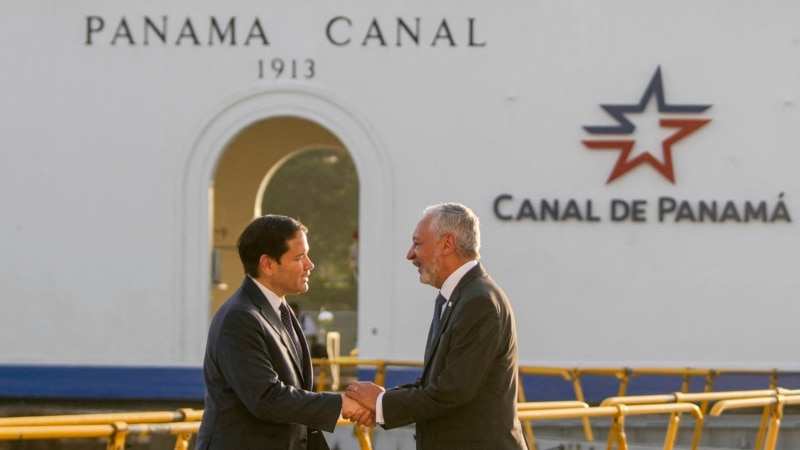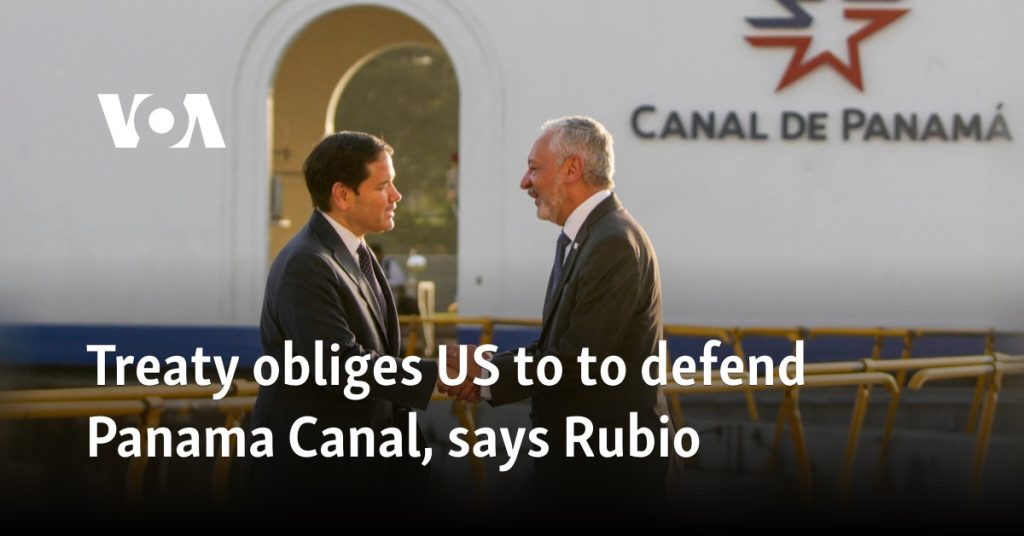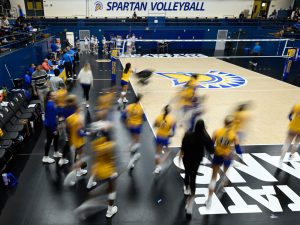
The United States has a treaty obligation to protect the Panama Canal if it comes under attack, U.S. Secretary of State Marco Rubio said Thursday, amid confusion and what Panama has described as “lies” regarding whether U.S. Navy ships can transit the Panama Canal for free.
“I find it absurd that we would have to pay fees to transit a zone that we are obligated to protect in a time of conflict. Those are our expectations. … They were clearly understood in those conversations,” Rubio said during a press conference in Santo Domingo, the capital of the Dominican Republic. He held talks with Panamanian President Jose Rauu Mulino in Panama City on Sunday.
Rubio was referring to a treaty signed by the U.S. and Panama in 1977.
The top U.S. diplomat told reporters that while he respects Panama’s democratically elected government and acknowledges that it has “a process of laws and procedures that it needs to follow,” the treaty obligation “would have to be enforced by the armed forces the United States, particularly the U.S. Navy.”
The U.S. intends to pursue an amicable resolution, Rubio said.
Mulino posted on X that he planned to speak with U.S. President Donald Trump on Friday afternoon.
On Wednesday, the U.S. State Department said, via a social media post on X, that U.S. government vessels can now transit the Panama Canal without incurring fees, saving the U.S. government millions of dollars annually.
But the Panama Canal Authority, an autonomous agency overseen by the Panamanian government, disputed the U.S. claim, saying that it has made no adjustments to these fees. It also expressed its willingness to engage in dialogue with relevant U.S. officials.
During his weekly press conference on Thursday, the Panamanian president denied his country had reached a deal allowing U.S. warships to transit the Panama Canal for free, saying he completely rejected the State Department’s statement.
Belt and Road Initiative
Meanwhile, Mulino told reporters that the Panamanian Embassy in Beijing had provided China with the required 90-day notice of its decision to exit the Belt and Road Initiative, also known as BRI.
He denied that the decision was made at Washington’s request, saying that he was taking time to assess Panama’s relationship with China and decide what would best serve his country’s interests.
“I don’t know what the incentive was for the person who signed that agreement with China,” Mulino said in Spanish, adding that he did not think the BRI had brought major benefits to his country.
Panama joined China’s BRI under former President Juan Carlos Varela. The agreement was signed in 2018, following Panama’s decision in 2017 to establish its diplomatic relations with China and sever ties with Taiwan.
Rubio has welcomed Panama’s decision not to renew its participation in China’s BRI.
China describes the BRI, which was launched in 2013 under President Xi Jinping, as a vast infrastructure initiative designed to connect multiple continents through land and maritime routes.
The United States has warned that the project is driven by China’s mission to manipulate and undermine the global rules-based trading system for its own benefit.
In Beijing, Chinese officials dismissed what they called the U.S.’s “irresponsible remarks on the Panama Canal issue” and accused Washington of intentionally distorting, attacking and mischaracterizing relevant cooperation.
“China firmly opposes it and made stern demarches to the U.S. side,” said Lin Jian, a spokesperson for China’s Foreign Ministry.
While in Santo Domingo, Rubio met with Dominican President Luis Abinader and Foreign Minister Roberto Alvarez.
The Dominican Republic is the final stop on Rubio’s five-nation tour across Central America and the Caribbean, which focuses on curbing illegal immigration, combating drug trafficking and countering China’s growing influence in the Western Hemisphere.
Some information for this report came from The Associated Press, Agence France Presse and Reuters.








